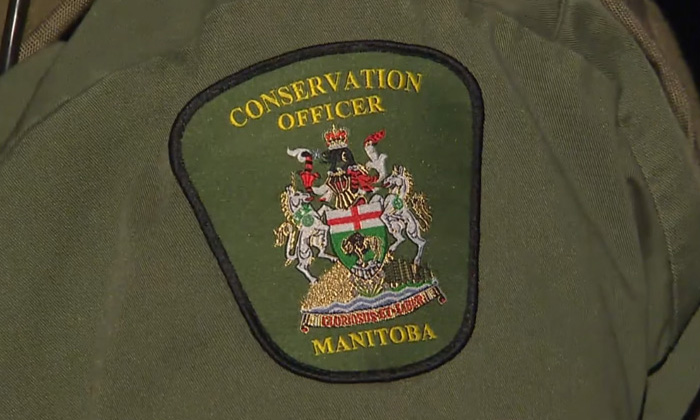Manitoba Natural Resources and Northern Development are reporting that conservation officers, through a variety of enforcement activities, have ticketed and fined numerous individuals for illegal activities during the months of April through June, 2023.
Over the weekend of June 10 and 11, the Manitoba Conservation Officer Service partnered with Canadian wildlife officers to conduct a fish, wildlife, and Aquatic Invasive Species (AIS) compliance checkstop at the Canada-U.S. border crossing at Emerson. Over the two-day operation, conservation officers and Canadian wildlife officers inspected more than 140 vehicles. In total, 10 tickets were issued; four Manitoba Fishery Regulations for over limits of fish, four Manitoba Fishery Regulations for transporting fish without identifying skin and one Wild Animal and Plant Protection and Regulation of International and Interprovincial Trade Act (WAPPRIITA) for unlawful export of a bear and one Water Protection Act for transporting a boat without the drain plug removed. Four warnings were issued for the unlawful export of an animal part and one warning was issued for fishing over the limit. Officers were encouraged by the overall level of compliance and the opportunity to interact with the public at a border crossing location where the export of the province’s resources could be assessed.
On June 1, conservation officers from the Interlake area were notified by Aquatic Invasive Species staff that a truck pulling a pontoon boat drove past the AIS inspection station at Mulvihill. An officer responded and pulled the vehicle over approximately 16 kilometres north of the inspection station. The driver stated the vessel was new and had not yet been in the water. The officer pointed out that the signage clearly states all watercraft must report and noted AIS staff have no way of knowing if the watercraft had been in the water unless the mandatory inspection was completed. The driver, from Wanless, was issued a ticket for $672 under the Water Protection Act for failing to report for inspection.
On May 29, AIS staff notified a conservation officer from the Interlake area that two trucks pulling boats travelling north drove past the check station. An officer intercepted the vehicles and pulled them over near Ashern. Both vehicles were travelling together and were aware of the requirement to report for inspections. The driver, from St. Joseph, Missouri, of the lead vehicle was issued a ticket for $672 under the Water Protection Act for failing to report for inspection. The driver of the second vehicle, also from St. Joseph, Missouri, was issued a written warning. Both vehicles were directed to turn around and report to the AIS check station. The public is reminded that all watercraft users, including those with canoes, kayaks and standup paddle boards, must stop at AIS inspection stations when the stations are open.
On May 24, Neepawa conservation officers received information about two individuals actively selling fish outside businesses in Neepawa. Upon receiving a detailed description of the suspects and their vehicle, officers were able to stop the vehicle shortly afterwards. The two individuals were in possession of 63 packages of fresh walleye fillets (approximately 31 kilograms). A man and woman from the Amaranth area each received two tickets under the Fisheries Act with fines totalling $3,564. All of the walleye fillets were seized and donated to local food banks. The public is reminded that fish can only be lawfully purchased from a licenced commercial fisher or fish dealer.
On Apr. 7, conservation officers from the Roblin area located an ice shelter on Lake of the Prairies seven days after the legal date they are allowed to be on the lake. There were hundreds of shelters on the ice over the winter and this one, an old camper trailer, was the only one that had not been removed. Officers seized the shelter and charged the owner, from Salt Coats, Saskatchewan, under Manitoba Fishery Regulations. The owner received a $775 fine.
Anyone with information on illegal activity is asked to call a local Natural Resources and Northern Development office or the Turn in Poachers (TIP) line at 1-800-782-0076.





